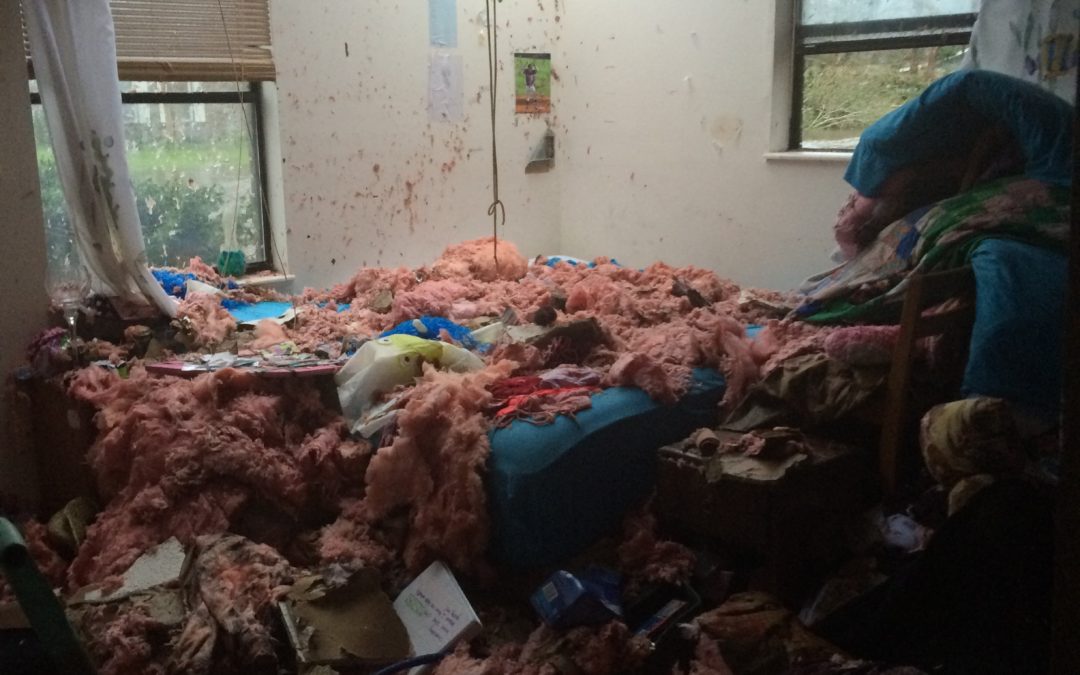Hurricane Michael tore through parts of the southeast starting October 10th, claiming the title of the worst storm to hit the United States since Hurricane Camille in 1969, according to an ABC News article.
“It’s a sad time when you go on Google and search for images of your town and you see devastation, not beautiful beaches,” said Allison Lewis of Lynn Haven, Florida, the town her family lives in, which was recently destroyed by Hurricane Michael.
Two of Florida’s panhandle cities, Mexico Beach and Panama City, were especially wrecked by the category four hurricane. Other southeastern states, like North Carolina, Virginia, Alabama and Georgia, were also affected.
According to CNN, at least 32 lives have been claimed by the hurricane, and over 1,000 people are missing, according to a BBC News article. Additionally, homes and buildings have been literally ripped apart, and millions of homes are without power.
Hurricane Michael’s strength came as a surprise to some. For Orlando-raised Lipscomb student Jeffrey Crisan, the hurricanes he lived through growing up were a fun excuse to play in the rain.
“It’s really weird, because, when I lived in Florida and I went through hurricanes, it wasn’t really scary,” Crisan said.
He added that his family in Panama City, Florida, felt similarly unconcerned about the latest hurricane, noting that they were “all just hanging out.”
Unlike Crisan’s family, Lipscomb student Allison Lewis’ family in Lynn Haven, Florida, which is between Panama City and Mexico Beach, decided to evacuate. However, they “returned right after to help out,” according to Lewis.
Being ten hours away from his Floridian family left Crisan more nervous than he’s used to.
“I’m so much more scared…that’s probably the hardest part; knowing they’re ten hours away, and I can’t do anything to help them,” Crisan said.
Other family and friends of those affected by Hurricane Michael also found it hard to not comfort and help their loved ones in person. For Crisan, one of the scariest parts was not being able to get in touch with his family immediately following the hurricane.
“They had turned all their phones off, trying to save batteries, and all the power was out,” Crisan said. “So that was definitely scary.”
Allison Lewis felt a similar fear after not being able to get in touch with her family.
“There was a point in time where I had not heard from my parents or brother in three days, and I was freaking out,” Lewis said. “There is just no way to get in contact with people there. Most everyone I know is physically okay; they are alive. Their homes, not so much.”
Crisan’s sister, who lives with their cousins, aunt and uncle in Panama City, Florida, was especially affected by the hurricane’s violence.
“Out of nowhere, they hear a loud noise, and my sister’s roof starts collapsing in,” Crisan said. “And then, not too long after that, my cousin’s roof collapses in.”
Shortly after that, the doors on each side of Crisan’s aunt’s house started blowing in, due to the high winds.
“All four of them are trying to hold doors closed,” Crisan said. “My aunt…the door swung open and hit her in the head [and] left a huge bump.”
Other destruction to Crisan’s aunt’s house included her kitchen ceiling collapsing, water flooding the living room, and every tree in their backyard falling down.
“Aside from most of their house being ruined, two of their bedrooms are fine, so that’s where they’re staying right now,” Crisan noted.
Thankfully, all of Crisan’s affected family members are “as healthy as they can be,” and are “in good spirits.”
Lewis added she feels thankful for the minimal damage her family suffered compared to other southeastern residents.
“My family is very fortunate to have suffered the damages we did,” Lewis said.
A house down the street from her’s is gone, but Lewis’ family’s “damages were only…minor flooding, minor water damage inside the house from windows, [a] lost roof off the boat house, [damage to] some of our porch, broken lights, exterior surface damage, and we need a new roof.”
Other residents, like Lewis’ neighbors whose house is gone, were less-fortunate, and Lewis wants to help.
After approaching Lipscomb’s Missions department, Lewis inspired a relief team that will be sent out soon, possibly to Panama City, Florida. Josh Self, Lipscomb’s Missions Coordinator, is helping plan the relief team.
Details will be published in the next week. Check back with Lumination for more updates.
Featured image courtesy of Crisan

